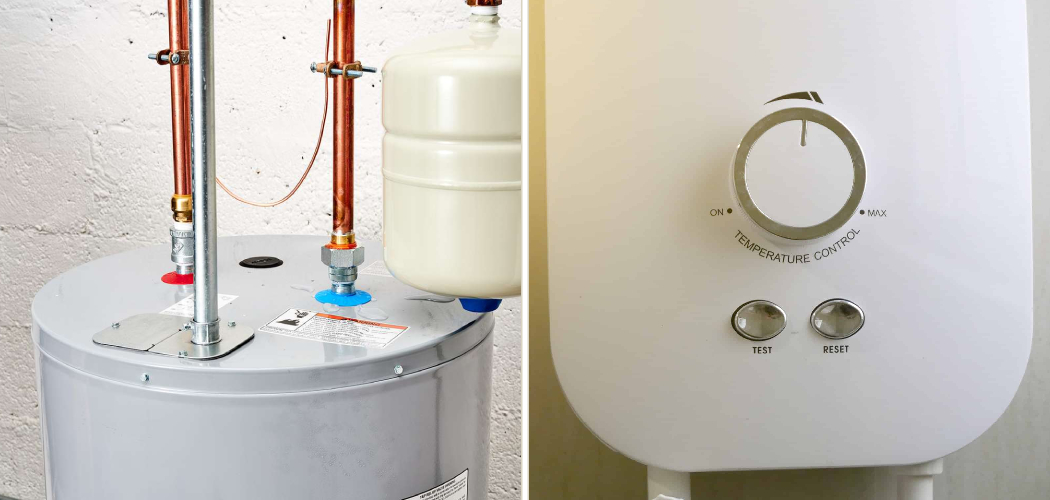A whistling water heater can be a loud, irritating sound that no one wants to hear. It can also be an indication of serious problems with your water heater that need to be addressed. If the whistling is coming from the vent pipe of your water heater, then it could mean there’s a build-up of condensation and steam. This can potentially cause leaks and other serious damage to the unit. It’s important to act quickly if you notice a whistle coming from your water heater so you can take steps to stop it.
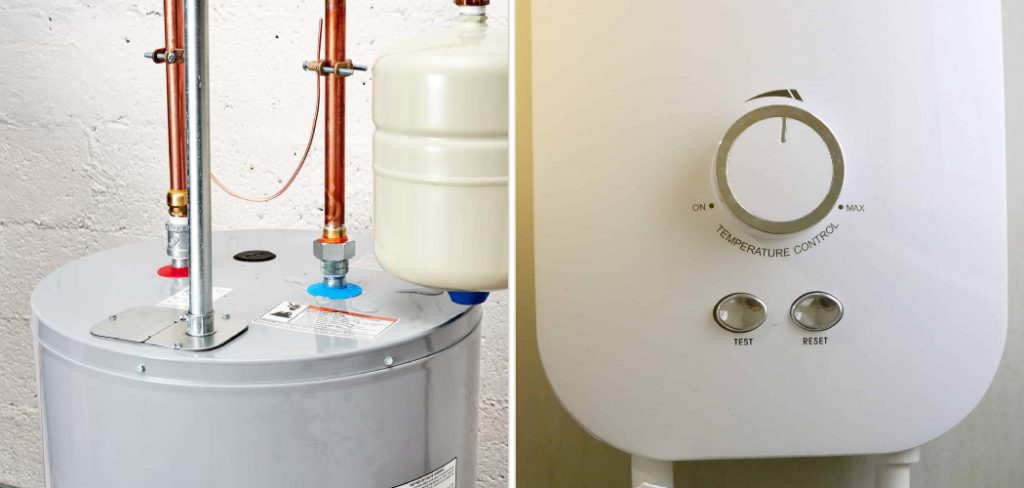
One of the advantages of learning to stop a whistling water heater is that it can save you money. A whistling water heater is usually caused by an accumulation of sediment at the bottom of your tank, which restricts the flow of hot water and makes your heater run inefficiently. If left unchecked, this issue can cause your energy bills to skyrocket. You can find step-by-step instructions on how to stop a whistling water heater in this blog article.
What is the Cause of a Whistling Water Heater?
A whistling water heater is usually caused by an excessive buildup of sediment inside the tank. As the sediment accumulates and takes up space, it restricts the flow of hot water through the pipes, leading to higher pressure in the tank. This causes air bubbles to be pushed up and out through the pipe, creating a whistling sound as the air escapes.
The tank must remove sediment to stop a whistling water heater. This can be done by draining and flushing the water heater periodically. How often this needs to be done depends on your local water conditions, so it’s best to consult a professional for specific advice. Once the sediment is thoroughly drained, the water pressure should return to normal. If it doesn’t, there may be a source of high pressure somewhere else in your plumbing system, and you’ll need to seek out and correct this issue.
Step-by-Step Processes for How to Stop a Whistling Water Heater
Step 1: Inspect the Pressure Relief Valve
The most common cause of a whistling water heater is an issue with the pressure relief valve. This valve is designed to open and release pressurized air or steam when the system gets too hot or too much pressure builds up. Inspect this valve for any signs of damage, such as rust or cracks, and replace it if necessary.
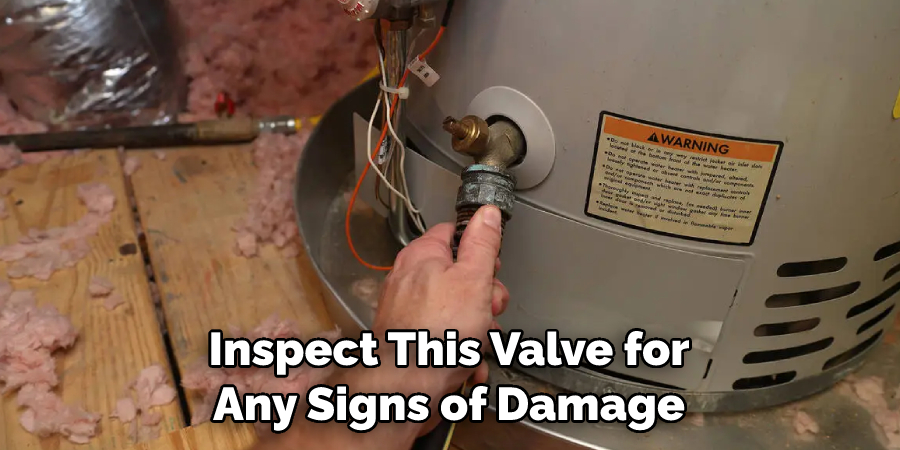
Step 2: Inspect the Expansion Tank
Another possible cause of a whistling water heater is an issue with the expansion tank. This tank is designed to contain any excess pressure in the system and help keep it at a consistent level. Inspect this tank for any signs of wear or damage, such as rust or cracks, and replace it if necessary.
Step 3: Check the Water Level
The water level can also affect the pressure in your system and cause a whistling noise. Low water levels will cause excess pressure to build up, which can trigger the pressure relief valve to open and create a whistling sound. Check the water levels in your heater and adjust as necessary.
Step 4: Check for Leaks
Any leaks in your system can also cause a whistling noise. Inspect all pipes, valves, and other fixtures for any signs of leaking or damage. Repair any leaks immediately to prevent any further damage to the system and stop the whistling noise.
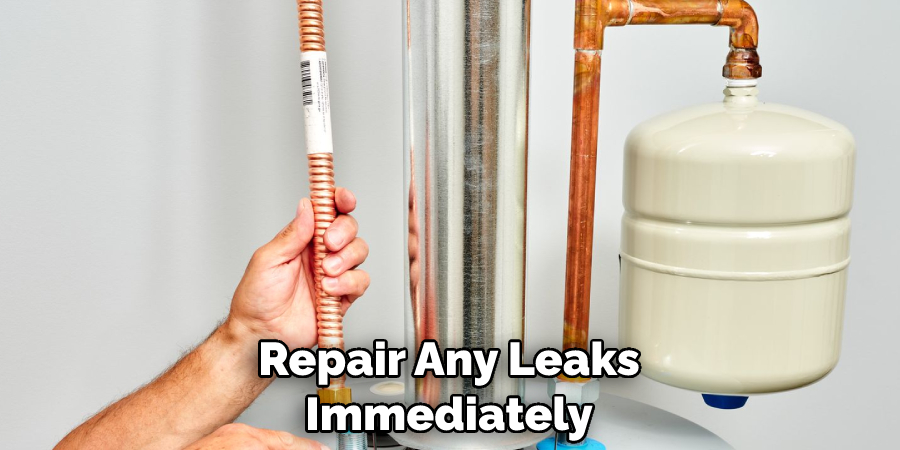
Step 5: Contact a Professional
If none of the steps above resolve the issue, it is best to contact a professional plumber. They can inspect your system and diagnose any underlying issues that may be causing the whistling noise. A qualified plumber will also be able to advise on how to prevent future problems and ensure your water heater runs efficiently.
By following these steps, you can ensure your water heater runs smoothly and prevent any whistling noises. You can fix the issue quickly and safely with the right knowledge and tools.
Tips for How to Stop a Whistling Water Heater
- Before you start any repair or maintenance work on a water heater, make sure to turn off the power source at the breaker box. This will ensure your safety and prevent any electrical shock from occurring.
- Inspect the water heater to make sure that it is not leaking and that all of the components are securely connected. If you find any signs of leakage or damage, do not attempt to repair the water heater yourself and contact a professional instead.
- Check to see if the whistling sound is coming from within the heater or from the pipes connected to it. If the sound comes from within the heater, you may need to replace or repair some of its components.
- Verify that the necessary air vents have been installed at all points where flue gases are expelled from water heaters and other fuel-burning appliances. Make sure that these vents are free and clear of any obstructions.
- Inspect the pilot light to ensure it’s functioning properly and not leaking gas if you find that it is, shut off the gas valve immediately and contact a professional to repair the problem.
- Ensure there are no kinks in the pipes connected to your water heater. Kinks in the pipes can cause pressure to build up, resulting in whistling and other noises.
- If your water heater has a pressure relief valve, ensure it’s not blocked or leaking. Check that the valve is securely attached to the discharge pipe.
- When undertaking any repairs or maintenance to your water heater, always make sure to wear protective clothing and goggles. This will help ensure that you are safe from any potential hazards.
Following these simple tips can help ensure your safety when attempting to stop a whistling water heater. If the problem persists after trying these steps, contact a professional for further assistance.
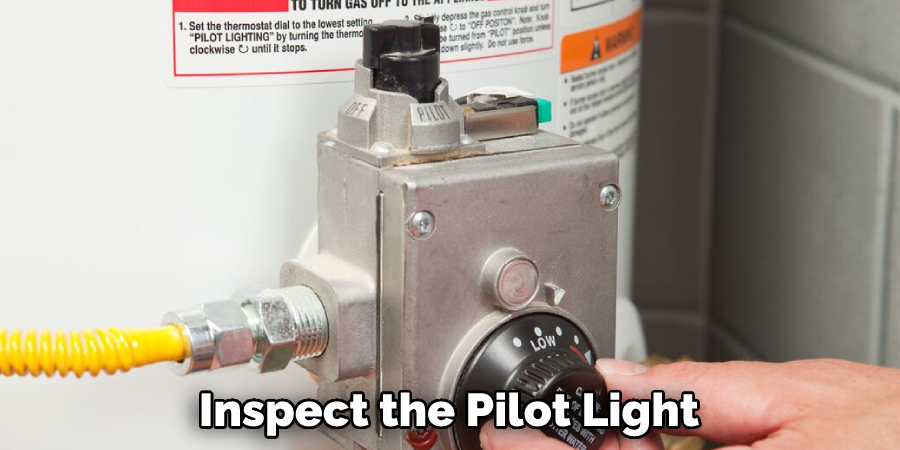
How Long Should It Take for a Hot Water Heater to Stop Whistling After the Adjustments Have Been Made?
Once the adjustments have been made to stop a whistling water heater, the sound should take about 15 minutes to dissipate completely. However, it’s possible that the sound may not completely go away until you’ve completed additional steps, such as draining and flushing the tank or replacing parts. If, after 15 minutes, the noise persists, then it’s time to investigate further and determine the source of the issue.
If the adjustments don’t stop the whistling sound, it may be caused by a buildup of limescale in the tank or a damaged dip tube. To resolve this, you’ll need to drain and flush your water heater or replace parts such as the dip tube. You may also need to check for any loose connections and tighten them if necessary.
How Can You Prevent a Whistling Water Heater in the Future?
Preventing a whistling water heater is the best way to keep your peace of mind and your wallet. Here are some ways to stop a whistling water heater before it starts:
- Check for Adequate Tank Size: An undersized hot water tank can cause excessive pressure and overheating, which can lead to a whistling sound. Ensure your hot water tank is the right size for your home’s plumbing system.
- Check the Temperature and Pressure: If the temperature and pressure of your hot water tank are too high, it can cause overheating, leading to a whistling sound. Ensure the temperature and pressure are within the recommended range for your model.
- Ensure the Water is Not too Hard: If you have hard water, it can cause corrosion and sediment to build up inside your hot water tank, leading to a whistling sound. Soften your water if necessary to prevent this problem.
- Check the Anode Rods: Anode rods can become corroded over time, leading to a whistling sound. Replace them when necessary to avoid this issue.
- Have the Tank Inspected Regularly: Have your hot water tank inspected by a professional at least once a year to help prevent any problems from occurring that can lead to a whistling water heater.
By following the tips above, you can help ensure that your hot water tank remains free of any issues that can lead to a whistling sound. If you experience this issue, take care of it quickly before it becomes a more serious problem.
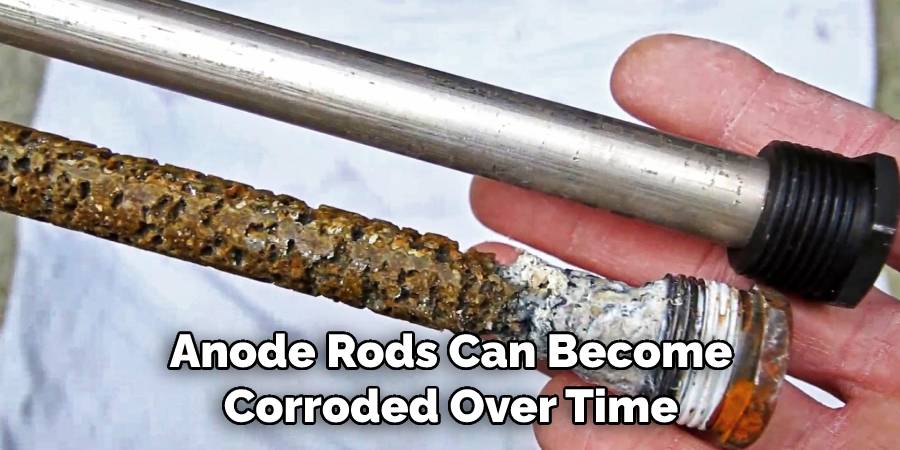
Conclusion
The primary disadvantage of trying to stop a whistling water heater is that there is no guarantee that the issue will be solved. Depending on how advanced the problem is, it may require more extensive repairs or even replacement to end the whistling permanently. Additionally, attempting to fix a whistling water heater can be time-consuming and expensive, as it usually involves removing and replacing parts of the system.
In conclusion, understanding to stop a whistling water heater is important in ensuring your water heating system works properly. You can adjust the temperature, replace the parts causing noise, insulate the pipes and tank, or completely replace the unit, depending on the problem you have identified. As always, remember to consult a professional if you do not feel confident in making the needed repairs yourself. I hope this article has been beneficial in learning how to stop a whistling water heater. Make Sure the precautionary measures are followed chronologically.

